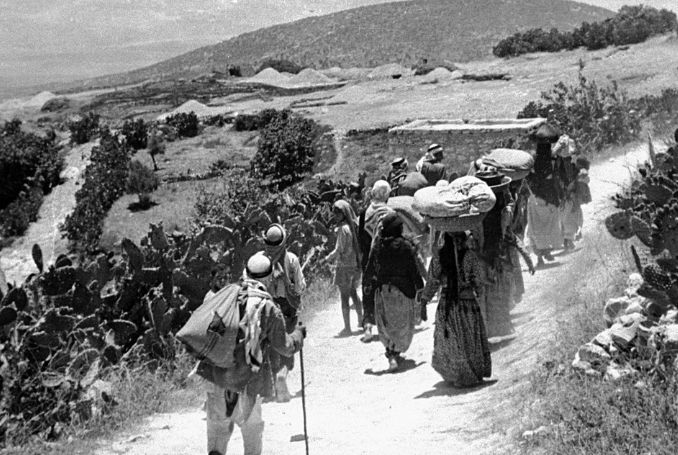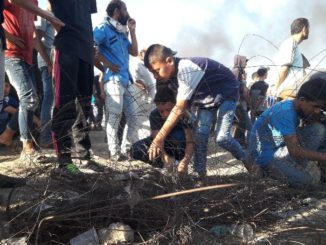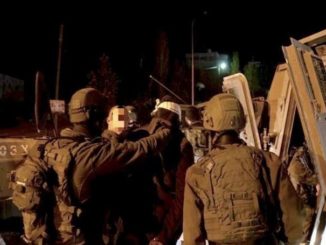
Historians have recovered official documentation proving that Israeli militias poisoned wells to prevent expelled Palestinians from returning to their home villages during the Nakba in 1948, the Israeli newspaper Haaretz reported on Friday.
Testimonies regarding the act of biological warfare have been heard and publicized for decades, but historians Benny Morris and Benjamin Z. Kedar have found Israeli military documentation that has cast any doubt over its occurrence aside and provided new details regarding its scope, according to Haaretz.
“We uncovered a lot of new information,” Morris told Haaretz.
“We deciphered how the operation developed through its various stages; we discovered who authorized, organized and controlled the operation, and how it was carried out in different areas.”
The operation, which was codenamed ‘Cast Thy Bread’, began in April 1948, when Israel, formally established as a state a month later, was in the process of expelling hundreds of thousands of Palestinians from their homeland and its army and associated militias committed a host of massacres.
"Right of Return: Nakba is Back on Palestinian Agenda"
Ramzy Baroud's latest analysis article through https://t.co/c9Qbyd1xjc pic.twitter.com/LeUSQP65ig
— The Palestine Chronicle (@PalestineChron) June 3, 2022
Initially focused on an area between Jerusalem and Tel Aviv, the poisoning operation expanded to include areas across Palestine.
It was at first ordinary soldiers who were tasked with poisoning the wells, but the job was later given to the mista’arvim, an undercover force who disguised themselves as Palestinians and specialized in sabotage operations in enemy territory, according to the documents.
‘Place the Material in the Wells’: Docs Point to Israeli Army’s 1948 Biological Warfare#POISONINGtheWELLSin1948https://t.co/8ilbzTefDs pic.twitter.com/yasL9S0acL
— Lisa Lua Acrata (@AcrataLisa) October 14, 2022
The poison was produced in a unit in the army’s Science Corps that dealt with biological warfare.
It was even proposed that the operation be expanded to include Beirut and Cairo, to stop Arab armies from invading – but this part of the scheme did not materialize.
Dozens of people fell ill because of the poisoning, according to previous reports.
Much of the Israeli archives from the Nakba period remain classified – though many new historic details from the period are slowly resurfacing.
(The New Arab, PC, SOCIAL)







